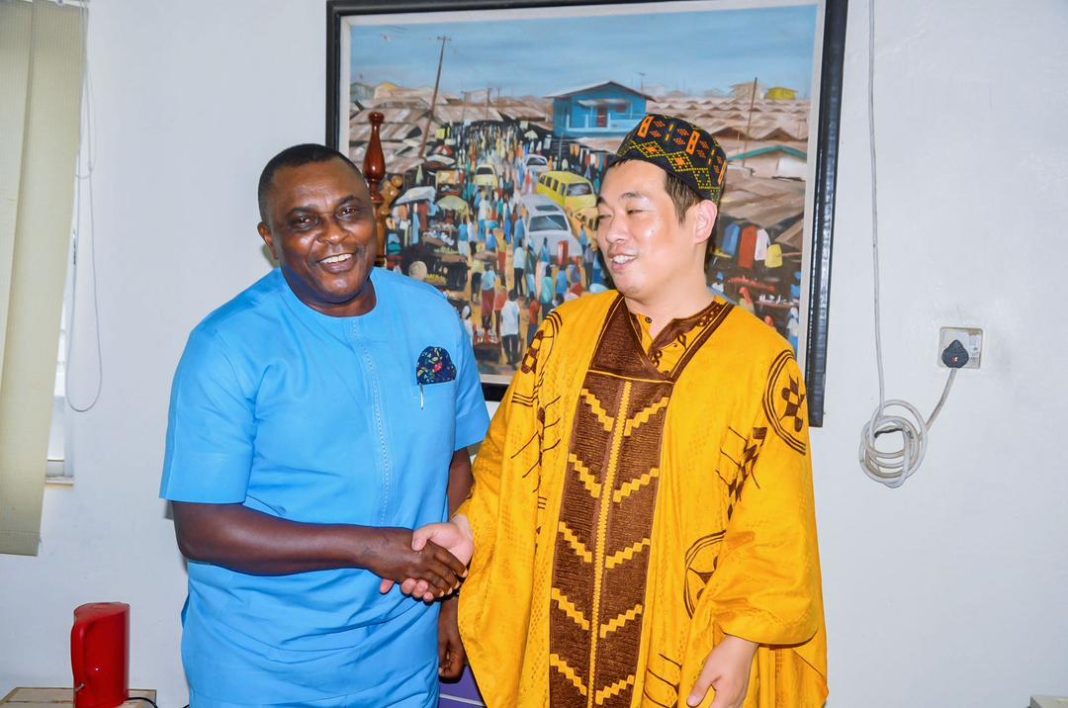When we think of Africa’s fight for independence, iconic names like Nelson Mandela, Patrice Lumumba, and Kwame Nkrumah come to mind. But beyond these revolutionary figures lies a lesser-told story: China’s quiet but impactful role in shaping the continent’s liberation and its post-colonial journey.
In the 1950s and 60s, as African nations fought to unshackle themselves from colonial rule, China was carving its own path as a newly established People’s Republic under Mao Zedong. Though separated by oceans and cultural differences, China saw Africa as a kindred spirit in the global South—both victims of imperialism, both hungry for sovereignty. What followed was a period of solidarity that not only influenced Africa’s independence struggles but also forged lasting ties that continue to shape its trajectory today.
The Support That Went Beyond Borders
China’s backing for African liberation movements was more than symbolic—it was strategic and hands-on. From funding revolutionary movements to training guerrilla fighters, China’s assistance touched several corners of the continent.
For instance, during Algeria’s war of independence against French colonial rule (1954–1962), China supplied the National Liberation Front (FLN) with arms, financial aid, and political training. This was part of a broader ideological strategy to counter Western dominance and expand its own influence among non-aligned nations.
In Southern Africa, China’s support became even more pronounced. The Zimbabwe African National Union (ZANU), a key player in Zimbabwe’s liberation struggle, benefited immensely from Chinese military training and resources. Similarly, in Mozambique, the Mozambican Liberation Front (FRELIMO) received arms and training from China to fight Portuguese colonial forces.
Even in less direct ways, China championed African liberation causes on the global stage. At the Bandung Conference in 1955, where Asian and African leaders gathered to discuss decolonization and solidarity, China’s Premier Zhou Enlai emerged as a leading voice advocating for African nations’ right to self-determination.
The Tanzania-Zambia Railway: A Lifeline of Liberation
Perhaps the most iconic symbol of China’s commitment to Africa was the construction of the Tanzania-Zambia Railway (TAZARA) in the 1970s. Often called the “Uhuru Railway” (uhuru means “freedom” in Swahili), this 1,860-kilometer line was a logistical miracle and a political statement.
At the time, Zambia—a landlocked nation—depended heavily on routes through apartheid South Africa and Portuguese-controlled Mozambique to export its copper, a critical lifeline for its economy. These colonial links were not just inconvenient; they were politically fraught, as Zambia’s anti-apartheid stance clashed with its dependency on hostile neighbors.
China stepped in with a staggering $400 million interest-free loan (equivalent to billions today), technical expertise, and manpower to construct the railway. By connecting Zambia to Tanzania’s port of Dar es Salaam, TAZARA broke Zambia’s economic dependence on colonial networks and became a beacon of African self-reliance.
Shaping the Post-Colonial Era
China’s involvement in African liberation movements wasn’t merely altruistic—it was also deeply pragmatic. Supporting Africa’s independence struggles allowed China to gain political allies and expand its influence during the Cold War, when both the United States and the Soviet Union were vying for dominance in the global South.
This strategy paid off. By the early 1970s, a significant number of African nations backed China’s bid to replace Taiwan at the United Nations. In 1971, Resolution 2758 granted the People’s Republic of China a permanent seat at the UN, a diplomatic victory largely made possible by African support.
In the decades that followed, the foundation of goodwill laid during the independence era transformed into deeper economic and political ties. Today, China is Africa’s largest trading partner, with billions of dollars invested in infrastructure, energy, and telecommunications projects across the continent.
A Complex Legacy
Of course, China’s role in Africa hasn’t been without criticism. While its support during the independence era is celebrated, its modern-day engagement has drawn accusations of neocolonialism and debt diplomacy. Critics argue that China’s massive infrastructure loans risk plunging African nations into unsustainable debt. Others counter that these partnerships reflect mutual benefit rather than exploitation.
Regardless of these debates, one truth remains: without China’s solidarity during their liberation struggles, many African nations might have faced even greater obstacles in achieving independence.
The Bonds That Endure
Today, the shared history of struggle forms the backbone of Sino-African relations. Streets named after Zhou Enlai in countries like Tanzania and Zambia are quiet reminders of this solidarity. Diplomatic summits between China and African nations often invoke the “spirit of Bandung,” harking back to their early partnership against imperialism.
In an era where Africa is increasingly asserting its voice on the global stage, China remains both a partner and a point of contention. But its role in Africa’s fight for freedom is a chapter worth remembering—not just as a tale of past alliances, but as a lens to understand the continent’s present and future.




